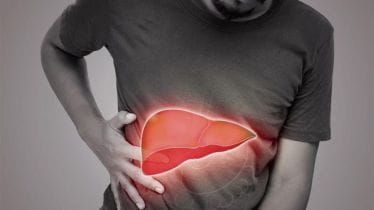When we talk about major health diseases, the most common diseases that come to our mind are either diabetes or obesity. But there’s another condition which is silently harming people across India, and that is liver cirrhosis. Often called a “silent killer,” cirrhosis initially may show no clear symptoms until the damage is already severe. Whether it’s due to alcohol, infections, or metabolic disorders, experts warn that cirrhosis is a serious health issue that deserves more attention.
What is liver cirrhosis?
Liver cirrhosis is the end stage of chronic liver disease. It happens when long-term damage causes healthy liver tissue to be replaced by scar tissue (called fibrosis), which blocks blood flow and prevents the liver from doing its vital functions like detoxifying the body, aiding digestion, and helping with blood clotting.
“Most people don’t realise how critical the liver is until it stops working,” explains Dr. Lovkesh Anand, Director and Unit Head – Gastroenterology, Hepatology and Endoscopy, Max Super Speciality Hospital, Dwarka.
“By the time liver disease causes symptoms, the damage is often irreversible. That’s what makes cirrhosis so dangerous—it doesn’t announce itself loudly,” he further added.
Common causes of Liver Cirrhosis
1. Chronic alcohol consumption
Regular and heavy alcohol intake is one of the leading causes of liver cirrhosis. Alcohol damages liver cells, causing inflammation and eventually fibrosis. The damage is cumulative and may take years to become symptomatic, making regular screening essential for those with a drinking history.
“Even people who don’t consider themselves alcoholics can develop liver damage,” says Dr. Anand. “It’s not just how much you drink, but how long you’ve been drinking,” he added.
2. Viral hepatitis (Hepatitis B and C)
Infections like hepatitis B and C silently inflame the liver for years. Without treatment, they can lead to cirrhosis or even liver cancer. Fortunately, hepatitis B can be prevented with a vaccine, and hepatitis C is now curable with antiviral medicines.
“The key is early detection. Many people live with hepatitis for years without knowing,” adds Dr. Anand.
3. Non-Alcoholic Fatty Liver Disease (NAFLD)
With rising rates of obesity and diabetes, NAFLD is becoming a major cause of cirrhosis. It starts with fat accumulation in the liver, which can progress to inflammation (NASH) and scarring. Unlike alcoholic liver disease, NAFLD affects even those who don’t drink.
“NAFLD is becoming the leading cause of cirrhosis, especially among people who’ve never touched alcohol,” says Dr. Anand. “This makes regular liver check-ups crucial, even for non-drinkers.”
4. Autoimmune and genetic disorders
Rare conditions like autoimmune hepatitis or genetic diseases such as Wilson’s disease and hemochromatosis can also lead to cirrhosis. These often go undiagnosed until late stages. Family history and basic blood tests can help in early detection.
Symptoms that often go unnoticed until it’s too late
Cirrhosis doesn’t always show signs early on. But as the condition worsens, symptoms may appear, including:
- Constant tiredness
- Yellowing of the skin or eyes (jaundice)
- Swelling in the legs or belly
- Easy bruising or bleeding
- Memory issues or confusion
“If any of these symptoms appear, especially in someone with a history of liver issues, they should see a doctor immediately,” warns Dr. Anand.
Complications that may follow
If left untreated, cirrhosis can cause serious health problems, including liver failure, internal bleeding, kidney issues, or even liver cancer. At that stage, treatment becomes more complex and survival rates decline sharply..
Can cirrhosis be prevented?
Yes, most cases can be prevented with lifestyle changes and medical care. Here’s what Dr Anand recommends:
- Limit or avoid alcohol, especially if you already have liver risk factors.
- Get vaccinated against hepatitis A and B.
- Eat healthy and stay active to prevent obesity and NAFLD.
- Go for regular liver function tests, especially if you have diabetes, are overweight, or have a family history of liver disease.
- Follow your doctor’s advice if diagnosed. Medications, dietary changes, and routine check-ups can slow or stop disease progression.
Liver cirrhosis doesn’t develop overnight, but once it reaches an advanced stage, there are fewer chances for reversal. But the good news is that it is preventable.
“Don’t wait for symptoms. Be proactive with your liver health,” says Dr. Anand. “Simple tests, timely treatment, and lifestyle changes can save your liver and your life,” he added.
